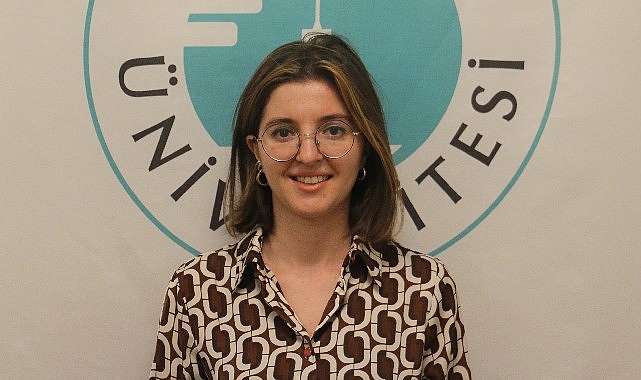
Emphasizing that it is very important for the mother to have a healthy and balanced diet during pregnancy and lactation, experts state that the need for protein increases during this period. Emphasizing that 1/3 of the daily protein must be met from animal sources, experts also recommend mixed nutrition for the consumption of plant-based proteins. According to experts, consuming cereals with milk and its derivatives can help eliminate the imbalance of essential amino acids compared to consuming only cereals. The best example of this is dried beans and rice pilaf.
Üsküdar University Health Services Vocational School (SHMYO) Food Technology Program Instructor Gökçen Özüpek evaluated the importance of healthy and balanced nutrition during pregnancy.
There are many factors that affect maternal and infant health.
Gökçen Özüpek, a nutrition and diet specialist who stated that protein-containing nutrition is important during pregnancy, stated that there are many factors that affect mother and baby health during pregnancy and lactation, and these are the age of the mother (especially being under the age of 18 or over 35), the number of pregnancies/multiple pregnancies, period between pregnancies, genetic factors, chronic diseases, drug use and most importantly adequate and balanced nutrition.
Expressing that there is an important relationship between nutrition during pregnancy and the health of the baby in the mother’s womb, Özüpek said, “The physical and mental growth and development of the baby in this process is possible with the mother’s adequate and balanced nutrition throughout her pregnancy.” said.
The amount of protein to be consumed in 1 day
Referring to the recommended daily food consumption amounts during pregnancy, nutrition and diet expert Gökçen Özüpek said that 2 glasses of 400-500 ml of milk or yogurt, 2 slices of 60 grams of cheese, 3-4 portions of meat, fish, chicken, 1 portion of egg, Legumes, 5 to 7 servings of fresh fruit and vegetables should be consumed daily, he said. Özüpek listed the cereal group that should be consumed daily as 4-6 slices of bread and 2-3 servings of rice, bulgur and pasta.
Protein requirement increases by 20-25 grams
Gökçen Özüpek noted that the need for energy, macro and micro nutrients during pregnancy increases in order for the mother to meet her own physiological needs, to keep the stores in the body in balance, to ensure the healthy growth and development of the baby in the mother’s womb, and to prepare for the lactation period. The growth of the breast, the placenta and the development of the fetus increase the need for protein, which is one of the macronutrients, and an additional 20-25 grams should be increased in the normal protein requirement during this period. said.
Noting that their protein needs are met from animal sources such as red meat, chicken and other poultry, white meat such as fish, milk and dairy products such as yoghurt, ayran, kefir, cheese, and eggs, nutrition and diet expert Gökçen Özüpek said, “The protein requirement is also legumes, which are vegetable sources. is supplied from cereals and vegetables. said.
The highest protein is found in eggs.
Stating that the studies on the subject emphasize the nutritional quality of the protein, Özüpek said, “The nutritional quality of a protein is measured by the amount of essential amino acids and digestibility. Animal and vegetable protein sources differ from each other in this respect: Egg protein is an example protein. It is considered to be the protein with the highest availability by the body.” said.
Animal proteins make the body grow
Nutrition and diet specialist Gökçen Özüpek stated that animal proteins contain all of the exogenous amino acids and in a balanced ratio, and said, “The fact that amino acids are in a position within the animal protein molecule where digestive enzymes can easily act, increases the net protein utilization rate of animal proteins. Animal proteins are similar to the proteins in the human organism, even if consumed alone, they allow the body to grow. In addition, vitamin B12 is found with proteins of animal origin. With the consumption of animal-derived proteins, vitamin B12 is also taken.” said.
Vegetable proteins should be consumed with grains.
Emphasizing that cereals and legumes are important sources of protein in many developing countries due to economic difficulties, nutrition and diet expert Gökçen Özüpek said, “However, since vegetable proteins are not as balanced as animal proteins in terms of amino acid composition, their utilization rate in the body will be lower than animal proteins. Due to various socioeconomic factors, a mixed diet should be recommended to individuals with more plant sources in their diet.
Dry beans and rice pilaf are a balanced meal
Nutrition and diet expert Gökçen Özüpek gave the following examples about mixed nutrition consisting of vegetable proteins and grains:
“For example, consuming cereals together with milk and its derivatives can provide an imbalance of essential amino acids compared to consuming cereals alone. In cereals, lysine and threonine are amino acids found in limited quantities. Legumes, on the other hand, contain sulphurous amino acids in limited amounts. Therefore, it is important to have a meal containing both legumes and grains at the same time (such as beans and rice pilaf), rather than consuming only grains or legumes in a meal, in providing a balanced amino acid pattern.”
1/3 of the daily protein must be met from animal sources.
Noting that one of the most common health problems during pregnancy is iron deficiency anemia, nutrition and diet expert Gökçen Özüpek said, “Research has shown that including only plant-based protein-containing foods in the diet causes a decrease in iron absorption in the intestines due to the fiber content of these foods. indicates an increased risk of anemia. For all these reasons, it should not be forgotten that at least one-third of the daily protein requirement of a pregnant woman should be met from animal sources. he said.
Source: (BYZHA) – Beyaz News Agency

